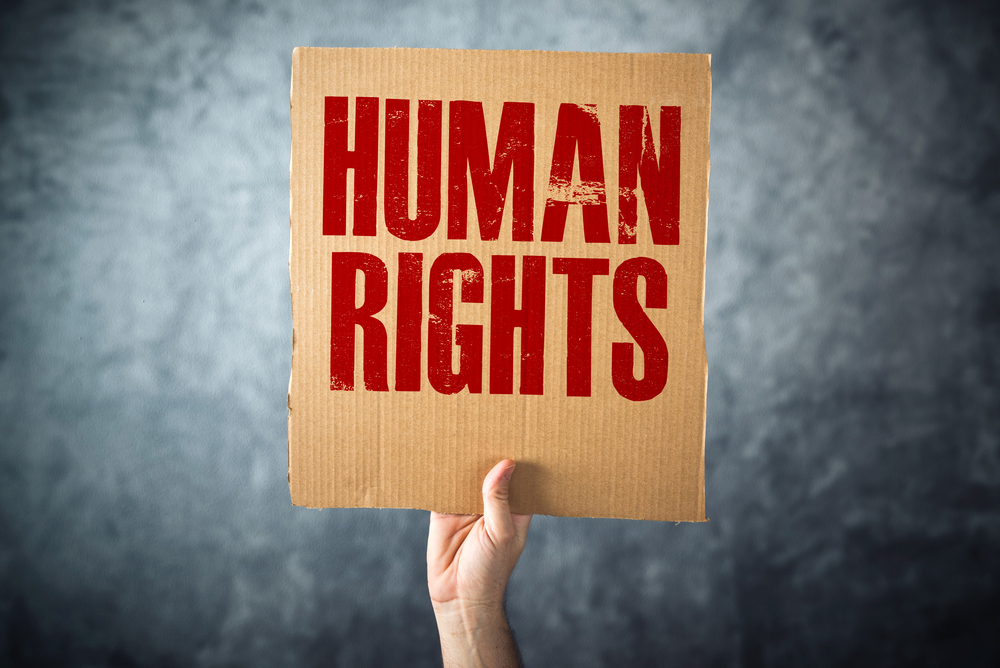Breaking
NY federal court summons Indian PM to respond to lawsuit accusing him of human rights abuses
NEW YORK—A U.S. human rights group on Friday offered a $10,000 reward for anyone who can serve on India’s prime minister a summons issued by a federal court in New York to respond to a lawsuit accusing him of serious abuses more than a decade ago.
Immunity rules for visiting foreign leaders mean Narendra Modi can’t be served papers to start a lawsuit, but the attention-grabbing case casts a shadow over his first trip to the U.S. as head of government.
The lawsuit against Modi stems from long-standing allegations that he didn’t do enough to stop devastating religious riots in his home state of Gujarat in 2002, when he served as chief minister there. More than 1,000 people, most of them Muslims, were killed in some of the worst religious violence India has seen since its independence from Britain in 1947.
The human rights group, the American Justice Center, filed the suit Thursday in Manhattan federal court on behalf of two unnamed survivors of the violence. The plaintiffs are seeking monetary and punitive damages and a judgment that Modi’s conduct amounted to genocide.
The legal case will be an annoyance to Modi, although it’s unlikely to have a significant impact on his trip that both Washington and New Delhi hope can help patch up strained ties between the world’s two largest democracies.
White House press secretary Josh Earnest said Friday that as a general legal principle, sitting heads of government enjoy immunity from lawsuits in American courts while in the United States. They also enjoy “personal inviolability,” which means they cannot be personally handed or delivered papers to begin the process of a lawsuit.
“I don’t anticipate that it’s going to have any impact on his very important visit here to the U.S. and to the White House,” Earnest told reporters.
Modi has denied any role in the Gujarat violence, and India’s Supreme Court said there was no case to bring against him. But suspicions were enough for the United States to refuse him a visa in 2005. As it became clear that Modi would become prime minister, however, the U.S. indicated that there would be no issue with his travel to the United States.
India’s Foreign Ministry described the case as “a frivolous and malicious attempt” to distract attention from Modi’s visit. It said “appropriate steps” were being taken to address the matter, without giving details.
Modi was elected prime minister in May. He arrived in New York on Friday and is expected to get a welcome normally reserved for rock stars: a sold-out appearance at Madison Square Garden on Sunday. During his five-day trip he’ll address the U.N. General Assembly and meet with President Barack Obama in Washington. Obama was among the first Western leaders to call and congratulate Modi when his party swept into power.
Previous Indian Prime Minister Manmohan Singh and former ruling party leader Sonia Gandhi also faced lawsuits when they visited the U.S. over accusations of complicity in abuses. Milan Vaishnav, an associate on South Asia at the Carnegie Endowment for International Peace, said neither case never really went anywhere. He said that after a wave of initial publicity, he does not expect the case against Modi to have much impact.
The earlier cases were brought by another rights group, Sikhs for Justice, which was advised by the same law firm representing the American Justice Center. The centre was set up earlier this year “to take the cases of the religious minorities in India,” said an attorney for the plaintiffs, Gurpatwant Pannun.
The centre’s president, Joseph Whittington, an alderman in the city of Harvey, Illinois, said it was a cause that residents in his ward wanted to stand up for.
Salman Yunus, another attorney for the plaintiffs, urged private citizens to print out a copy of the summons and throw it in the direction of Modi when he makes public appearances in the U.S. He said the American Justice Center is offering a $10,000 award for the first person to serve the summons on Modi and provide proof of doing so. Once the summons is served, Modi has 21 days to respond to the plaintiff over the complaint.
The lawsuit says, “There is evidence to support the conclusion that Minister Modi committed both acts of intentional and malicious direction to authorities in India to kill and maim innocent persons of the Muslim faith.”
The plaintiffs said the suit was filed in a U.S. court because “it is clear that justice for the plaintiffs cannot be had in India because of the condoning of this genocidal act of state-sanctioned terrorism against the Muslim people.”
Modi remains a divisive figure in the country of 1.2 billion people, in large part because of the Gujarat riots.
As chief minister of Gujarat state, he was in command in 2002 when Hindu mobs rampaged through Muslim neighbourhoods, towns and villages. The riots erupted after a fire killed 60 passengers on a train packed with Hindu pilgrims.
Associated Press writers Ulana Ilnytzky in New York, Nedra Pickler in Washington and Elizabeth A. Kennedy and Chonchui Ngashangva in New Delhi contributed to this report.






















